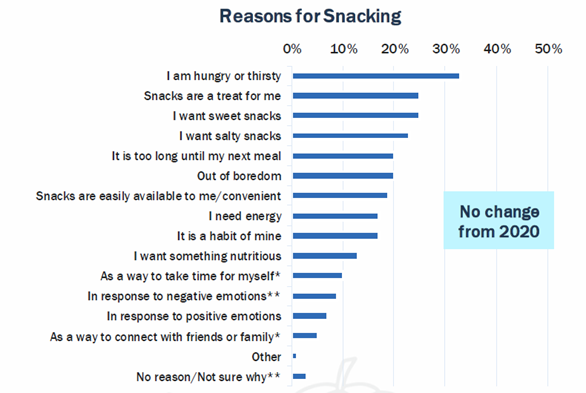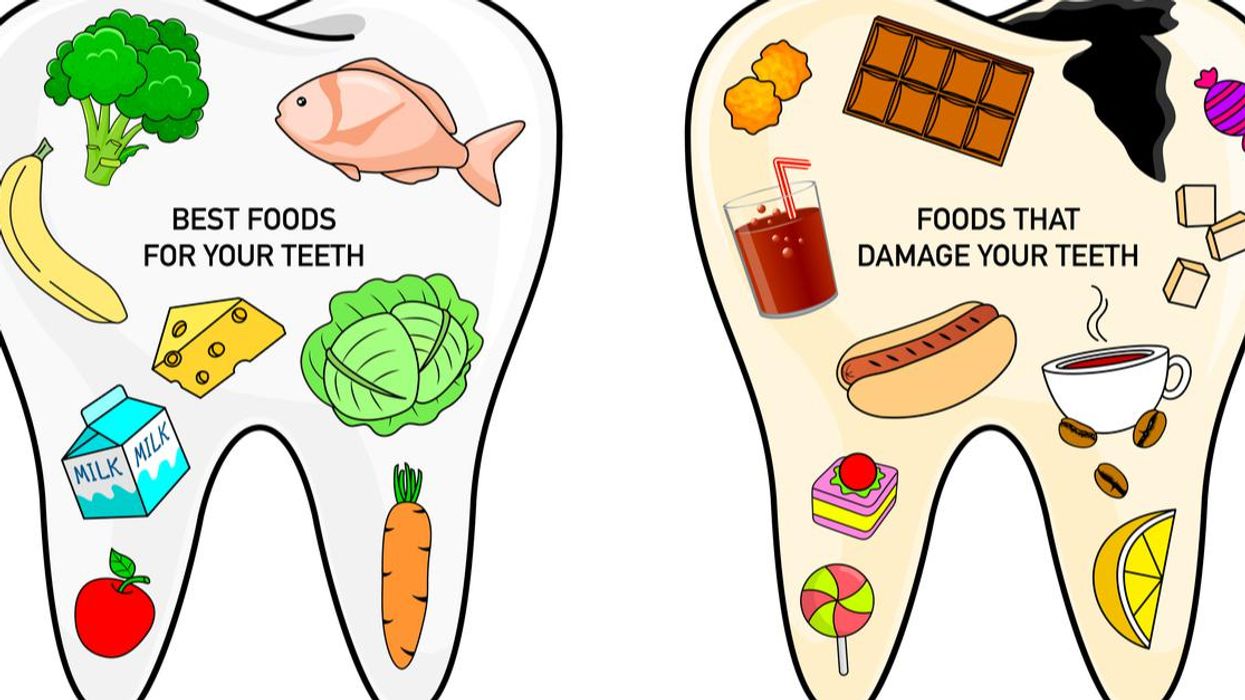Did you know that almost one-third of people in the world have a secret eating habit? And out of those people, two-thirds are women. Secret eating habits can take on many different forms, from excessive snacking to secretive binging. In this blog post, we will explore the different types of secret eating habits, their respective symptoms and causes, and ways to cope with them. We will also discuss DSM guidelines on Eating Disorders and treatment options for those living with an Eating Disorder. So if you or someone you know is struggling with a secret eating habit, read on!
Contents
Understanding Secret Eating Habits

Secret eating habits are exactly what they sound like – habits that people engage in privately, away from the eyes of others. Secret eating can take on many different forms, but often includes excessive snacking or secretive binging. People with secret eating habits will often go to great lengths to keep their habits hidden from friends and family.
What Are Types of Secret Eating?
There are many different types of secret eating habits, but some of the most common include:
- Excessive snacking: This type of secret eating often involves snacking on unhealthy foods like candy or junk food.
- Purging: Purging is the act of getting rid of food after eating by vomiting, using laxatives, or exercising excessively.
- Restrictive eating: Restrictive eating is when a person limits the amount or type of food they eat for fear of gaining weight.
- Over-exercising: Excessive exercise is when a person engages in too much physical activity, often to the point of injury.
- Secretive binging: Bingeing is defined as eating an excessive amount of food in a short period. People who binge often feel out of control and ashamed of their behavior.
Are Secret Eating Habits Same As Eating Disorders?
No, secret eating habits are not the same as Eating Disorders. However, they can often be a precursor to developing an Eating Disorder. People who have secret eating habits are more likely to develop an Eating Disorder than those who don’t.
What Are Eating Disorders?
Eating Disorders are a group of mental illnesses that involve abnormal eating habits. There are three main types of Eating Disorders – Anorexia Nervosa, Bulimia Nervosa, and Binge-eating Disorder.
Each type of Eating Disorder has its own set of symptoms and causes. However, all Eating Disorders share one common trait – a distorted body image. People with Eating Disorders often see themselves as fat, even when they are dangerously thin.
DSM Guidelines On Eating disorders
The Diagnostic and Statistical Manual of Mental Disorders (DSM) is the handbook used by mental health professionals to diagnose eating disorders. According to the DSM, there are three main types of eating disorders:
Anorexia nervosa: Anorexia nervosa is a condition characterized by an intense fear of gaining weight and a distorted view of body weight and shape. People with this disorder often have very low body weight.
Bulimia nervosa: Bulimia nervosa is a condition characterized by episodes of binge eating, followed by purging or excessive exercise to compensate for the binging.
Binge Eating Disorder: Binge Eating Disorder is the most common type of eating disorder, and is characterized by recurrent episodes of binge eating without purging.
When Is The Risk Of Secret Eating Habit Turning Into An Eating Disorders?
The risk of a secret eating habit turning into an Eating Disorder varies from person to person. However, some factors increase the risk, including:
Having a family history of Eating Disorders: People who have a family history of Eating Disorders are more likely to develop one themselves.
Having a history of depression or anxiety: People who have a history of depression or anxiety are also at risk for developing an Eating Disorder.
Experiencing body image issues: People who struggle with their body image are more likely to develop an Eating Disorder.
Experiencing trauma or emotional distress: Traumatic events or emotional distress can trigger an Eating Disorder.
What Are the Symptoms of Secret Eating?
The symptoms of secret eating can vary depending on the type of secret eating habit a person has. However, some common symptoms include:
Common Symptoms
- Feeling ashamed or embarrassed about your eating habits
- Hiding food or eating in secret
- Obsessing over food and weight
- Have difficulty controlling your eating behavior
- Experiencing physical symptoms like nausea, vomiting, and dizziness after eating
Specific Symptoms
Excessive snacking
- Eating more than usual,
- Eating unhealthy foods,
- Feeling guilty or ashamed about your snacking habits
Purging
- Vomiting after eating,
- Using laxatives or diuretics to purge food,
- Feeling like you need to purge after every meal
Restrictive eating
- Eating very little food,
- Only eating certain types of food,
- Fearing that you will gain weight if you don’t restrict your food intake
Over-exercising
- Exercising to the point of injury,
- Feeling like you have to exercise every day,
- Feeling guilty or ashamed about your exercise habits
Secretive binging
- Bingeing on large amounts of food,
- Feeling out of control during a binge episode,
- Feeling ashamed or embarrassed about your binging habits
What Are the Causes of Secret Eating?

Though the causes of secret eating habits are not fully understood, experts believe that a variety of factors may play a role. Some possible contributors include:
Hormonal changes: Many women experience an increase in hunger and cravings during menstruation. This can lead to secretive snacking.
Stress: Stress can be a major trigger for secret eating. When people are stressed, they often turn to food as a way to cope.
Negative body image: People who have negative body images are more likely to engage in restrictive or secretive eating habits.
Boredom: Boredom can also be a trigger for secret eating. When people are bored, they often turn to food as a way to pass the time.
Other Factors
Psychological factors: Psychological factors such as low self-esteem, perfectionism, and anxiety can also contribute to secret eating behavior.
Biological factors: There is some evidence that certain biological factors may contribute to secret eating behavior. For example, people with eating disorders may have different brain chemistry than those without them.
Environmental factors: The environment in which a person grows up can also play a role in the development of secret eating habits. For example, if someone is raised in a household where dieting is common, they may be more likely to develop an eating disorder.
Living With Secret Eating Habits
There are many ill effects of eating disorders, both physical and psychological. Some of the most common include:
Physical Effects
Weight loss or gain: People with eating disorders often have a distorted view of their body weight and shape. This can lead to dramatic weight changes, which can be dangerous to your health.
Dehydration: Purging can cause dehydration, which can lead to a wide range of health problems, including kidney failure and death.
Digestive problems: Eating disorders can cause a wide range of digestive problems, such as constipation, diarrhea, and stomach cramps.
Heart problems: Eating disorders can cause a wide range of heart problems, such as abnormal heart rhythms and even heart failure.
Brain fog: People with eating disorders often experience brain fog, which is a term used to describe feeling mentally unclear or groggy.
Malnutrition: Eating disorders often result in malnutrition due to the restricted or excessive intake of food. This can cause a wide range of health problems, including hair loss, weak bones, and organ damage.
Brittle hair and nails: Malnutrition can cause hair and nails to become brittle and thin.
Psychological Effects
Depression: People with eating disorders are at an increased risk for depression. This is likely because eating disorders are linked with body dissatisfaction and low self-esteem.
Anxiety: People with eating disorders are also at an increased risk for anxiety. This is likely because eating disorders involve a lot of obsessive thoughts about food and weight.
Self-harm: People with eating disorders are also at an increased risk for self-harm behaviors, such as cutting or burning themselves.
Suicidal thoughts: People with eating disorders are also at an increased risk for suicidal thoughts and suicide attempts.
Low self-esteem: People with eating disorders often have low self-esteem and negative body image. This can lead to depression, anxiety, and other mental health problems.
Isolation: People with eating disorders often isolate themselves from friends and family. This is likely because they feel ashamed or embarrassed about their eating disorder.
Poor body image: People with eating disorders often have a negative body image. This can lead to depression, anxiety, and other mental health problems.
How Can Secret Eating Eating Habits Affect One’s Life?
Secret eating habits can inhibit one’s life in several ways. Some of the most common include:
Confidence Issues: People with secret eating habits often have low self-esteem and negative body image. This can lead to confidence issues and difficulty interacting with others.
Social Problems: People with secret eating habits often have social problems due to their low self-esteem and lack of confidence. They may be shy or withdrawn, and they may have difficulty making friends.
Poor Academic Performance: People with secret eating habits often have poor academic performance because they are unable to focus on schoolwork when they are focused on their eating disorder.
Job Problems: People with secret eating habits often have job problems because they are unable to focus on their work when they are focused on their eating disorders.
Relationship Problems: People with secret eating habits often have relationship problems because they are unable to maintain healthy relationships when they are focused on their eating disorders.
Physical appearance: People with secret eating habits often have a distorted view of their body weight and shape. This can lead to dramatic weight changes, which can be dangerous to your health.
Mental health: People with secret eating habits are at an increased risk for developing mental health problems, such as depression, anxiety, and obsessive-compulsive disorder.
Health: People with secret eating habits are at an increased risk for a wide range of health problems, including hair loss, weak bones, and organ damage.
Coping With Secret Eating Habits

If you are struggling with a secret eating habit, there are several things you can do to cope:
Talk to someone: Talking to someone about your secret eating habits can be helpful. It can allow you to express what you are going through and get support from others.
Join a support group: Joining a support group for people with eating disorders can be helpful. This allows you to connect with other people who understand what you are going through.
See a therapist: Seeing a therapist can be helpful if you are struggling with a secret eating habit. A therapist can help you understand why you are engaging in secretive eating behavior and provide support to help you overcome it.
Get professional help: If your secret eating habits are causing significant problems in your life, it may be beneficial to get professional help. This involves working with a therapist or dietitian who can help you overcome your eating disorder. Treatment Options for Secret Eating Habits
Treatment Options For Secret Eating Habits
If you are struggling with a secret eating habit, there are several treatment options available:
Therapy: Therapy is often the first step in treating an eating disorder. Therapists can help you understand why you are engaging in secretive eating behavior and provide support to help you overcome it.
Furthermore, therapy is often the first step in treating an eating disorder. There are a variety of therapies that can be helpful, including cognitive-behavioral therapy, dialectical behavior therapy, and family-based therapy.
Nutrition counseling: Nutrition counseling is often an important part of treatment for eating disorders. Counselors can help people learn about healthy food choices and how to eat healthily. Especially, a dietitian can help you develop a healthy relationship with food and learn how to eat healthily.
Medication: If you have an eating disorder, you may need medication to help treat it. Medications that are commonly used to treat eating disorders include antidepressants and antipsychotics.
Self-help groups: Self-help groups can be a helpful part of treatment for eating disorders. These groups allow people to share their experiences and learn from others who are dealing with similar problems.
Helping Someone With Secret Eating Habits
If you know someone who is struggling with a secret eating habit, there are several things you can do to help:
Talk to them: Talk to the person about what you have noticed and express your concerns. Let them know that you want to help them and are available to support them.
Offer support: Offer the person emotional support and encouragement as they work to overcome their secret eating habit. Let them know that you are there for them and will help them through this process.
Monitor their progress: Monitor the person’s progress and offer support as needed. Be there for them to talk to and provide encouragement throughout the treatment process.
Provide resources: Provide the person with resources about eating disorders and related topics. This can include books, websites, and support groups. This can help them get started on getting help for their eating disorder.
Experts’ View On Secret Eating Habits
The following is a selection of experts’ views on secret eating habits:
“People with secret eating habits often feel ashamed and embarrassed about their behavior. They may feel like they are the only person who engages in secretive eating and that no one else understands what they are going through. This can be a very isolating experience.”
-Karen Carpenter, Ph.D., psychologist
“People with secret eating habits are often trying to hide their behavior from others. They may feel like they are a bad person for engaging in secretive eating and they may be ashamed of their body weight and shape. This can lead to a lot of emotional distress.”
-Linda Mintle, Ph.D., licensed clinical social worker
“People with secret eating habits are at an increased risk for a wide range of health problems, including hair loss, weak bones, and organ damage. This is because people who engage in secretive eating often have an unhealthy relationship with food and they may be dieting or restricting their food intake.”
-Meredith Accardi, Ph.D., registered dietitian
Case Study
Jen is a 34-year-old woman who struggled with a secret eating habit for many years. She often ate in secret and felt ashamed of her behavior. Jen was worried that she was the only person who engaged in secretive eating and that no one else understood what she was going through. This led to a lot of emotional distress for Jen.
Jen decided to seek treatment and worked with a therapist who helped her understand why she was engaging in secretive eating behavior. The therapist also provided support to help Jen overcome her disorder.
Jen also attended nutrition counseling sessions, where she learned about healthy food choices and how to eat healthily. As a result of treatment, Jen was able to overcome her secret eating habit and develop a healthy relationship with food.
Talking To a Professional

If you are struggling with a secret eating habit, it is important to reach out for help. There are several treatment options available, including therapy, nutrition counseling, and medication. Treatment can help you overcome your eating disorder and develop a healthy relationship with food. If you are unsure where to start, talk to your doctor or therapist about your options. They can help you find the right treatment for you.
Choosing The Right Professional
When choosing a professional to help you with your secret eating habit, it is important to select someone who understands what you are going through. The therapist should be able to provide support and guidance as you work to overcome your disorder. It is also important to find a therapist who specializes in eating disorders. This can ensure that you receive the best possible care.
- If you are looking for nutrition counseling, make sure to find a registered dietitian who specializes in eating disorders. This type of counselor can help you develop healthy eating habits and learn how to eat healthily.
- Medication may also be an option for people with secret eating habits. If this is the case, your doctor can help you find the right medication and dosage for you.
Conclusion
People with secret eating habits often feel ashamed and embarrassed about their behavior. They may feel like they are the only person who engages in secretive eating and that no one else understands what they are going through. This can be a very isolating experience. However, with the right treatment, you can overcome your disorder and develop a healthy relationship with food.
A Word From Therapy Mantra
Your mental health — Your psychological, emotional, and social well-being — has an impact on every aspect of your life. Positive mental health essentially allows you to effectively deal with life’s everyday challenges.
At TherapyMantra, we have a team of therapists who provide affordable online therapy to assist you with issues such as depression, anxiety, stress, workplace Issues, addiction, relationship, OCD, LGBTQ, and PTSD. You can book a free therapy or download our free Android or iOS app.


